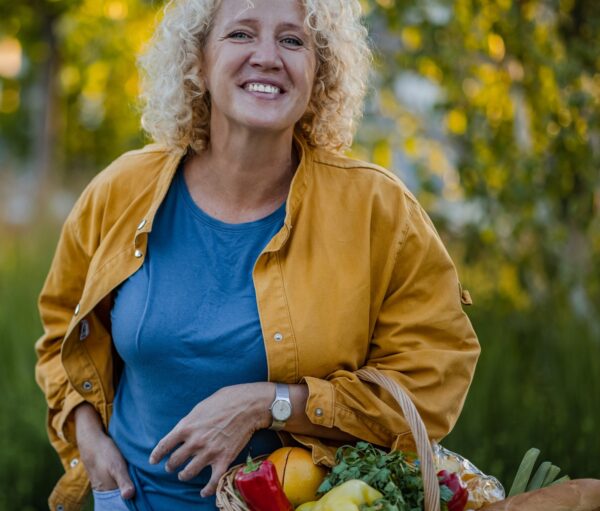Nutrition for the Older Adult

As we age, we may find ourselves with a newfound appreciation for soft foods, but let’s not forget about the importance of a well-rounded diet. Yes, even in our golden years, it’s still crucial to eat our veggies!
Proper nutrition can also help older adults maintain their independence. Malnutrition can lead to muscle weakness, which can make it more difficult for older adults to perform everyday tasks such as walking, climbing stairs, and getting in and out of a chair. A diet that is rich in protein can help maintain muscle mass and strength, which can help older adults maintain their independence and quality of life.
Another reason why nutrition is essential for older adults is that it can help maintain cognitive function. Studies have shown that a diet that is high in fruits, vegetables, and whole grains can help reduce the risk of cognitive decline and dementia. Nutrients such as omega-3 fatty acids and antioxidants have also been shown to have a protective effect on the brain. We can see why a focus on the older adult diet ensures that we stay healthy and independent as long as possible.
There are several reasons why older adults may not be getting the nutrients they need. One of the main factors is changes in taste and smell. As we age, our taste buds become less sensitive, and our sense of smell may decline. This can make food less appealing and can lead to a reduced appetite. Additionally, certain medications and chronic health conditions can affect appetite and digestion, making it more difficult for older adults to get the nutrients they need.
The good news is that there are many things that older adults can do to maintain a healthy diet that meets their nutritional needs. One of the most important steps is to focus on nutrient-dense foods that are easy to digest. This may include foods like fruits, vegetables, lean proteins, and whole grains. Additionally, older adults may benefit from eating smaller, more frequent meals throughout the day, as this can help to stimulate appetite and make it easier to get the nutrients they need.
In some cases, older adults may also benefit from working with a registered dietitian or nutritionist. These professionals can help to identify areas where an individual may be lacking in nutrients and can provide guidance on how to improve overall nutrition.
Another important step is to stay socially connected. Sharing a meal with family and friends is a naturally social act. Older adults can benefit from maintaining relationships with friends and family members and may also benefit from participating in social activities or volunteering in their community. This can help to provide a sense of purpose and can improve overall mood and well-being.


